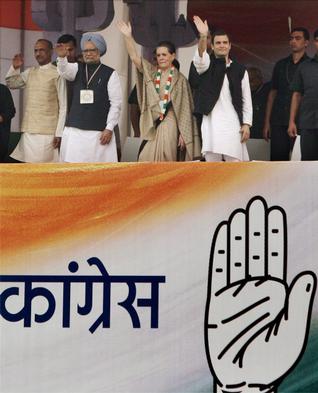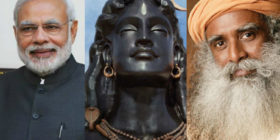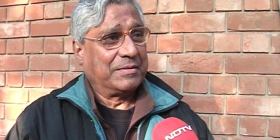The conclusion from the results is straightforward; the Congress is a political force in decline. When you consider the fact that the gap between the two parties is only set to widen — more so in states such as Madhya Pradesh and Rajasthan with Narendra Modi as the candidate, and with the BJP likely to fare far better in Chhattisgarh in 2014 — it seems there is little the party can do to arrest this decline in the run up to the general elections. For many in the country this is a welcome development, including people like me who have no hesitation in affirming liberal and secular values. But where I differ from the cheerleaders of BJP is in believing that the diminishment of the Congress is only a step towards ensuring that an authoritarian personality cult centred around Modi and his exclusionist ideology does not come to dominate the country. For me, it is the central requirement of Indian politics over the next decade. Difficult though it may be for the Congress to believe this, the only way the party can remain politically relevant is by further weakening itself. Within the party there is already talk of Rahul Gandhi playing a more subdued role, and Sonia Gandhi re-emerging as the most prominent face of the party. But such remedies is to misunderstand the verdict. In Rajasthan and Madhya Pradesh, where it was in a direct fight with the BJP, the party has been decimated, and even Chhattisgarh is unlikely to be a close contest in 2014 — Sonia Gandhi or no Sonia Gandhi. In Delhi, the Congress has slid to third place, a result that no one could have predicted earlier in the year.
As several analysts have argued, it is Delhi which is more representative of the battle that lies ahead. Despite the Congress’ poor showing, the BJP has face a real fight due to the Aam Aadmi Party. In a majority of the states, the challenge to the BJP is not from the Congress but from various regional parties. The real determinant of what sort of government will emerge in 2014 depends on the numerical strength of the regional parties. There are two straightforward alternatives that give the BJP and Narendra Modi an overwhelming advantage. One where the BJP has sufficient numbers — and this would mean anything over 190 or so — to make sure the government that is formed bears the stamp of Modi. The second is where the numbers so add up that the only alternative to a Modi-led BJP is a rag-tag coalition that will collapse in a couple of years paving the way for a much stronger showing by a Modi-led BJP. It is for this reason that the Congress cannot sit back and let things take their own course, relying only on the performance of the regional parties to stymie the BJP. It has to start working now to facilitate a formation that is a practical alternative to Modi. But a coalition where the Congress is an overwhelming presence whether inside the government or outside is doomed from the start — as the history of the coalitions in the 1990s bears out. Such a coalition would work only if the Congress ends up with a tally of 75 or so — rather than anything over 100. This would leave the Congress free to play the role the Left played UPA I, cementing the government from outside with support that is based on a pre-set agenda. The Congress is unlikely to end up with this low a tally, but it must work toward achieving exactly this. Such a goal may sound paradoxical, but consider what this would actually imply on the ground in states such as UP and Bihar. In UP, there have been several rounds of discussions between the BSP and the Congress over a possible alliance. The sticking point seems to be clear: while the BSP wants an alliance that extends across the country the Congress wants one restricted to UP. The Congress needs to give in and concede seats to the BSP in other states while remaining modest in its demands for seats in UP. Not only will this strengthen the resistance to Modi in states like MP and Rajasthan, it will also bolster an already strong BSP in UP. Such an approach is required even more so in Bihar where the Congress has to chose between Lalu Yadav and Nitish Kumar. The party backed by the Congress can hope to see a consolidation of Muslim votes behind it, but most of the seats handed over to the Congress in any alliance in Bihar would be a dead loss. Similar arguments extend across several states, and the resulting alliances that result from such concessions can serve as the nucleus for a coalition, even laying down a common minimum agenda for governance. All this, of course, assumes that the party is capable of such a vision, which consigns the family to the background. On the evidence so far, there is little reason to believe the party will take the leap. But perhaps the Congress needs to think back to 2004. If government formation then was marked by an act of abnegation by an individual, in 2014 it may require an act of abnegation by the entire party.






Leave a reply